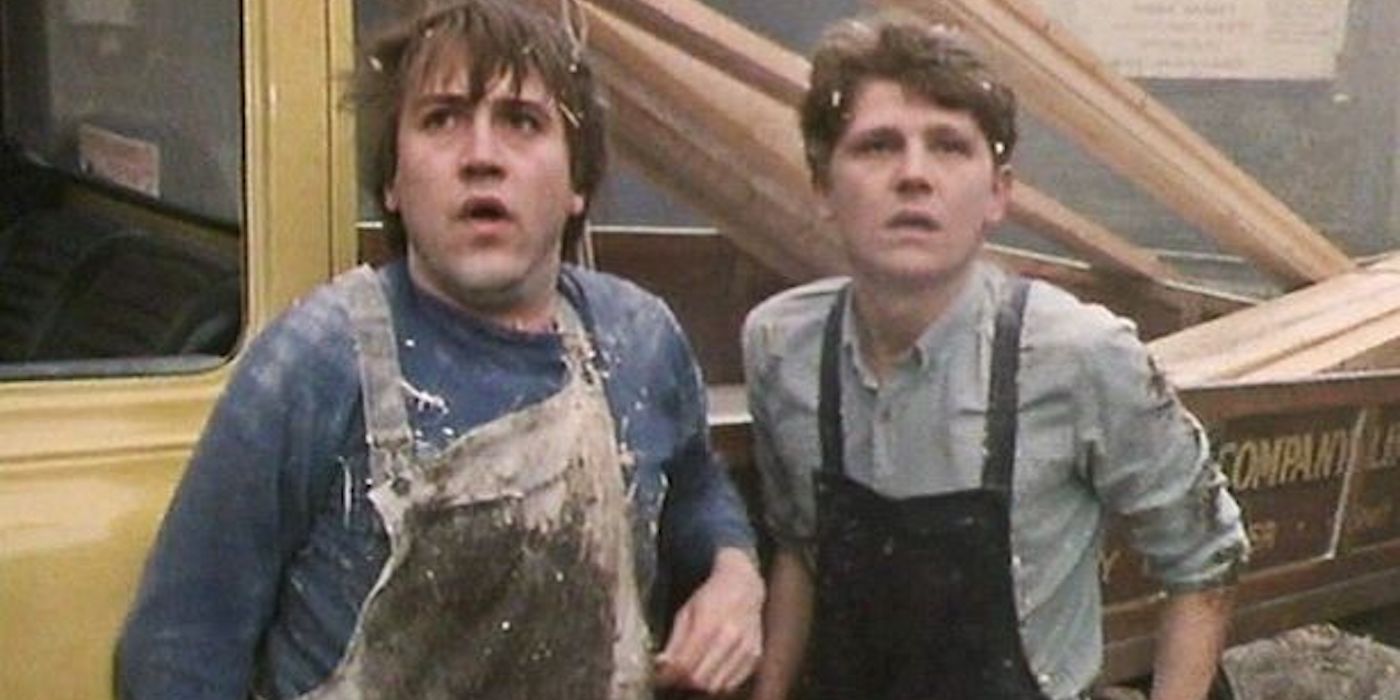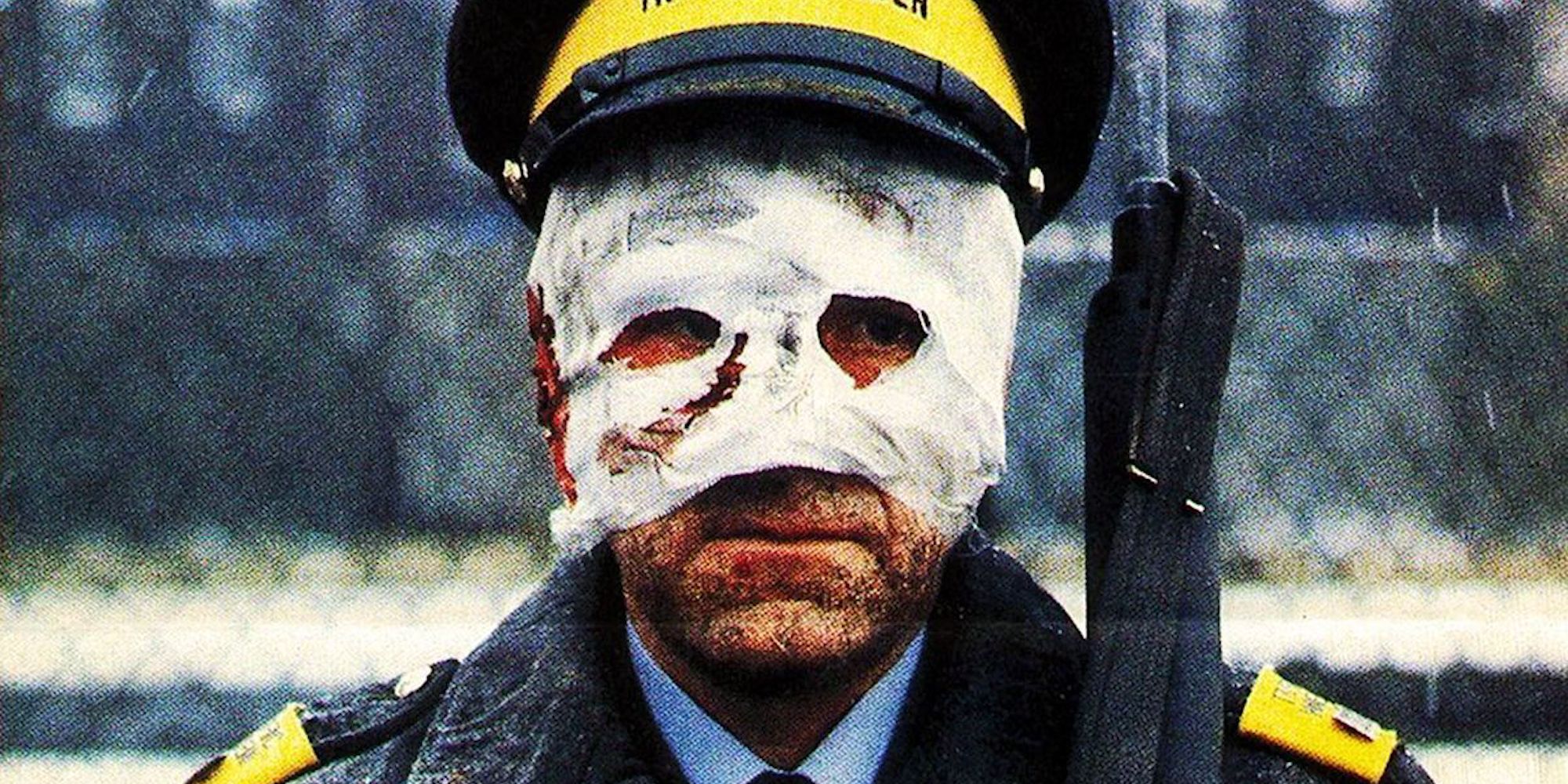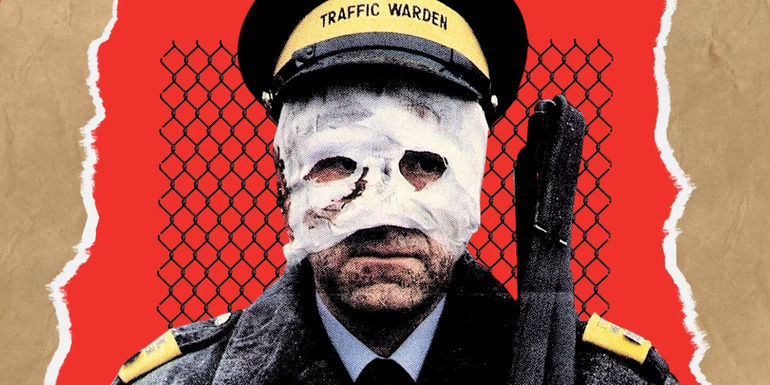The Big Picture
Threads is a terrifying and realistic depiction of a dystopian future where nuclear war erupts between the US and the Soviet Union, leaving millions dead and society in ruins.
The film centers on everyday individuals, instead of political figures or military leaders, and delves into the enduring effects of nuclear warfare, such as limited resources, illness, and a brutal winter.
Despite its limited financial resources, Threads effectively employs archival footage and an objective filmmaking approach to vividly depict the terrifying realities of nuclear war, rendering it an essential viewing experience for the courageous.
What Is 'Threads' About?
: The Haunting Resonance of Threads
Image Via the BBC
Threads stands out from other films in the apocalypse subgenre by focusing on the ordinary citizen as the primary victim of such an event. Director Mick Jackson and writer Barry Hines create a unique tone by steering away from squabbling politicians and bloodthirsty generals. Instead, these archetypes only exist as disembodied voices on a half-watched television, background noise in the local pub as teenagers go about their daily lives. The setting is Sheffield, an industrial city in Northern England in the 1980s, a time of recession, rising unemployment, and the aftermath of the Falklands War. These issues dominate the lives of Ruth and Jimmy, a young couple trying to build a stable life after discovering an unexpected pregnancy. At first glance, Threads resembles a typical kitchen sink soap opera like Coronation Street, but as the story unfolds, it becomes clear that the characters are about to face a much more daunting reality.
The story progresses, revealing background details that hint at a significant threat occurring thousands of miles away. The Soviet Union and the United States find themselves in a rapidly escalating conflict due to the former's invasion of Iran. Despite attempts to resolve the situation peacefully, it becomes evident that this conflict is inevitably leading towards a catastrophic outcome. Consequently, at 8:30 am British time (or 3:30 am in Washington, when the American response would be at its slowest), nuclear warheads are detonated across the North Sea, plunging the world into utter chaos. The United Kingdom, who had pledged to reinforce NATO, bears the brunt of this devastating attack. The scenes of horror and destruction that unfold are indescribable. Streets are filled with mayhem, bodies are unrecognizable, and entire cities are instantaneously reduced to ruins. The film portrays these nightmarish events with such unflinching objectivity that viewers could easily mistake the footage for a real-life assault. As the chaos finally subsides, the death toll across the British Isles ranges from 2.5 to 9 million, including the protagonist, Jimmy.
However, the devastation doesn't end there. While the deceased government's relentless public information campaign had prepared the nation for the immediate aftermath of a nuclear explosion, the long-term effects were grossly underestimated. The film's most harrowing moments lie in the weeks, months, and even decades following the initial detonation. Food becomes scarce, and humanity itself becomes even scarcer, reducing civilized individuals to desperate and selfless creatures. After six weeks, the extensive exposure to radiation leads to a sudden wave of deaths, overwhelming an already overcrowded healthcare system. Shortly thereafter, fallout from the bombs plunges Britain into an icy winter that wreaks havoc on the surviving population. Additionally, the damaged ozone layer causes a sharp rise in cataracts and cancer when sunlight eventually returns. The film explores these events in excruciating detail, leaving no agonizing truth unexplored. By the time the end credits roll, ten years have passed since the initial attacks, and life in 1990s Britain closely resembles that of the medieval era. In retrospect, it's not surprising that Jackson would pursue more uplifting films. Directing Threads would subject anyone to enough misery to last a lifetime.
'Threads' Had to be Made on a Minuscule Budget by the BBC

Image via BBC
Threads turned out to be a powerful and miraculous production, considering the limited resources it had. The decision to commission the film was influenced by Alasdair Milne, the Director-General of the BBC, who was inspired after watching the controversial 1965 documentary The War Game. Despite the documentary winning an Academy Award, it had been mostly erased from BBC history. The motive behind reigniting the debate is uncertain, but it presented a significant challenge. With a budget of only £400,000 and a tight seventeen-day shooting schedule, the BBC was far from a major Hollywood studio. This meant that producing a comprehensive depiction of nuclear war on such limited resources was no easy task. However, Milne had the perfect team in mind.
Mick Jackson and Barry Hines, the chosen duo, may have seemed like unconventional choices on paper. Jackson had primarily worked on documentary films, while Hines was renowned for his slice-of-life novels. Threads was a departure from their usual areas of expertise, and their lack of compatibility was apparent. Nevertheless, their collaboration proved to be a stroke of genius. Jackson's fly-on-the-wall directing and Hines' social-realistic writing created an atmosphere of authenticity that is a defining aspect of Threads. Their extensive research made them self-taught experts on the subject, enhancing the film's credibility. Milne couldn't have selected a better team to educate the nation about the grave threat of nuclear war.
'Threads' Is So Disturbing Because It's So Realistic

Image Via the BBC
Looking back, it is amazing how effectively Jackson and Hines made use of their limited budget to their advantage. It is commonly believed that constraints enhance creativity, and Threads is a remarkable example of this. While some may critique the frequent use of stock footage in the second half of the film, Jackson intentionally replicates their brutal imagery in his own newly shot footage, blurring the line between real and staged calamities. Furthermore, the presence of frequent title cards and the authoritative narration by BBC broadcaster Paul Vaughan may appear to compensate for the limited resources, but they also contribute to the film's resemblance to the genuine Protect and Survive information campaign run by the government since 1974. Although these details may be lost on contemporary viewers, they added a disconcertingly palpable quality to Threads at the time. It is no wonder that its premiere was dubbed "the night the country didn't sleep."
However, the most terrifying aspect of Threads lies in its matter-of-factness. This film does not rely on clichés and sentimentality; rather, it solely confronts the harsh reality, no matter how chilling or horrifying it may be. While a lesser director might have emphasized the misery out of fear that viewers in the cheaper seats would miss its impact, Jackson opts for a detached filmmaking style that allows the narrative to speak for itself. Jimmy's death, which could have been a pivotal moment for Jackson's directorial prowess, is presented with such nonchalance that viewers may not even realize it has occurred. He is not the only important character to disappear, creating a world in which death is not only commonplace but almost mundane. Jackson does not shy away from tragedy, but he also avoids fetishizing it. In one scene, two grieving parents discover their child's body - a profoundly harrowing moment elegantly captured by showing only the child's foot sticking out from beneath a pile of rubble, before the film cuts away. Jackson knows how far to push the graphic content, and by leaving the worst to the viewer's imagination, he crafts a perfect representation of a haunting nightmare.
'Threads' Has Rarely Been Shown on the BBC

When Threads first aired on BBC Two on September 23, 1984, it did not face the same backlash as The War Game did prior to its release. The film garnered high ratings for the channel and went on to win four BAFTAs during awards season. However, after a repeat showing in 1985 to commemorate the anniversary of the atomic bombings of Hiroshima and Nagasaki, Threads disappeared from British screens for nearly 20 years. It wasn't until 2003, the same year as the invasion of Iraq, that the BBC aired it again, after which it returned to the archives where it has remained since. Thankfully, with the release of home media and the rise of streaming, barriers preventing access to the film have been removed, allowing Jackson and Hines' masterpiece to be viewed by anyone willing to confront it.
But why has the BBC been hesitant to show Threads? The answer is simple: Jackson and Hines did their job too well. Films like Dr. Strangelove or Crimson Tide, for example, feature nuclear warfare but are firmly rooted in the realm of fiction. They are not likely to leave viewers paralyzed with fear after watching. Threads, on the other hand, has earned its ominous reputation because it feels disturbingly real. It is not a film that brings enjoyment; it is a film that instills open-eyed terror and gratitude for not living in a world with reckless leaders (or at least, that is the intended reaction). While the threat of nuclear annihilation may not be as pervasive today as it was during the Cold War, it remains a concern for future generations. Perhaps if the entire world were compelled to watch Threads, circumstances would be different.















